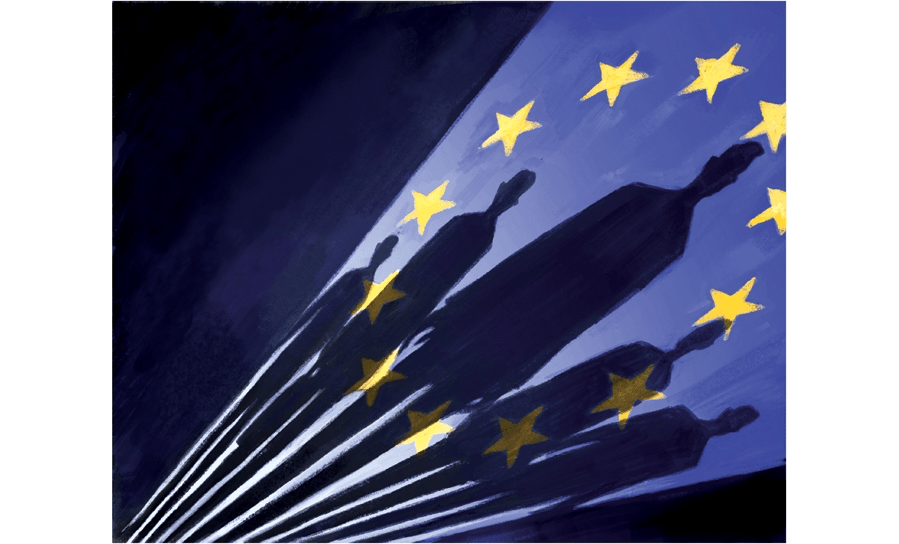German politics is backing Brussels in the ongoing dispute between the EU and AstraZeneca over Covid vaccine shipments. The European Union alleges that the pharma firm, which is producing the Oxford-developed vaccine, is planning to supply the UK faster and while failing to fulfil its contract with Brussels. A meeting on Wednesday between officials and representatives from the Cambridge-based company was described as ‘constructive’ but no solution was found.
Meanwhile, Martin Schulz, the former president of the European Parliament and prominent German Social Democrat, called for hard action against AstraZeneca. ‘This company is heavily dominated by the Brits and has apparently clear priorities as to which countries it supplies,’ he said. ‘If that is the case, then the European Commission and the German government have to intervene in a hard way. It cannot be that AstraZeneca decides which countries it supplies based on political considerations.’
‘The European Commission and the German government have to intervene in a hard way’
AstraZeneca’s CEO Pascal Soriot has already denied the accusations and played the ball back into Brussel’s court, claiming that AstraZeneca is not obliged to provide specific deliveries. That claim prompted an immediate reaction from Brussels, as EU officials suggested that the contract with AstraZeneca precisely determines how many vaccines have to be supplied and even names the plants in which the vaccines have to be produced. Among these plants are ones located in Britain where, according to Soriot, no production issues have occurred.
The EU reacted angrily to Soriot’s statement that the British government simply ordered vaccines earlier than Brussels. The bloc made a preliminary payment of £300 million back in August, ordering 400 million doses in the process. EU officials argue that if AstraZeneca had predicted supply issues, the company should have revealed this information to Brussels. Indeed, some in Brussels have suggested AstraZeneca should hand over jabs produced in the UK which are currently intended for British patients.
While Martin Schulz has blamed AstraZeneca, other German politicians are more worried about the role of the EU in the vaccine-supply disaster. Brussels requires a complex market approval for vaccines instead of emergency approval, a model used by countries like the UK and US which have made quicker progress in vaccinating their populations. This prolonged approval procedure has delayed a full vaccination rollout in the EU.
Pfizer-BioNTech and Moderna were the first to receive approval from Brussels for their respective vaccines on the European market. Pfizer-BioNTech had temporary production issues but claims that these are now solved (but not before Italian politicians threatened legal action over the possible delays). Meanwhile, the French firm Sanofi has committed to producing 125 million doses of the Pfizer jab from the beginning of the summer after abandoning plans for their own vaccine.
Recent, heavily-disputed reports have suggested that AstraZeneca’s vaccine might not have the required effect for people over the age of 65. Experts from the European Medicines Agency are currently evaluating clinical data and are expected to rule on whether AstraZeneca will be approved for EU markets on Friday. But if these reports, which supposedly came from anonymous sources in the German government, are correct — and the EMA decides that the AstraZeneca jab is ineffective in the most vulnerable — this begs the question as to why the EU is so bothered about supply in the first place.






Comments